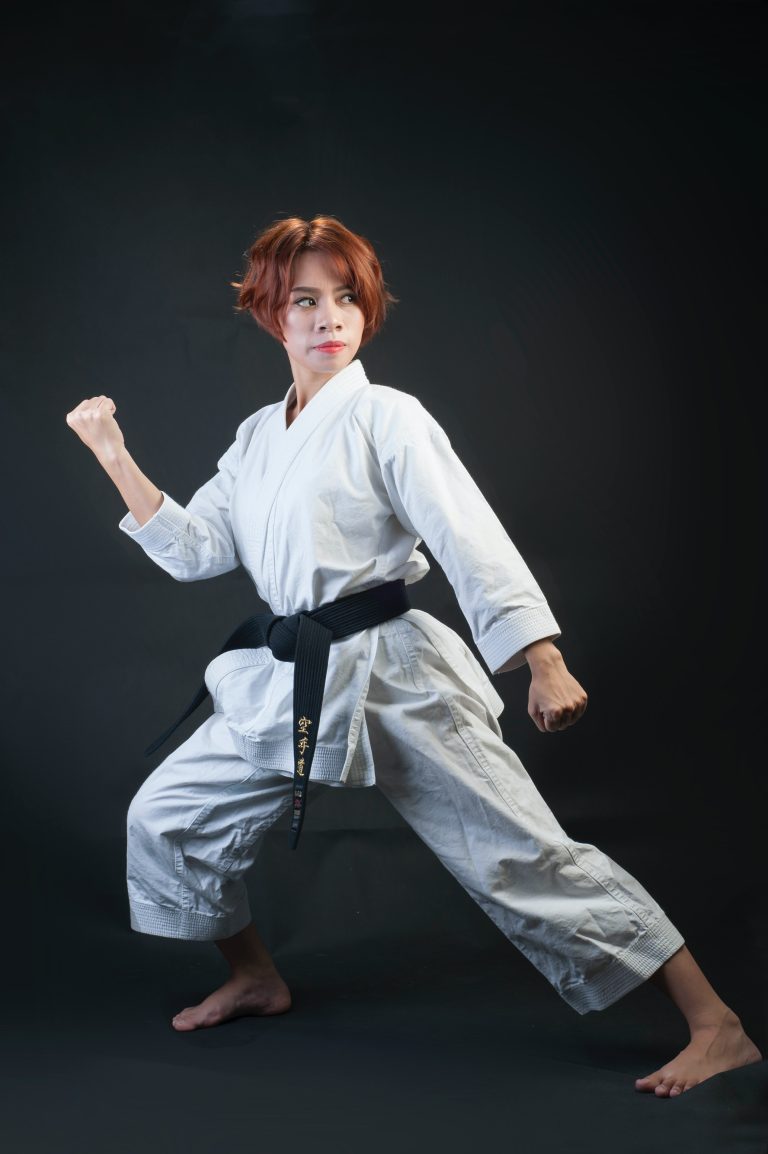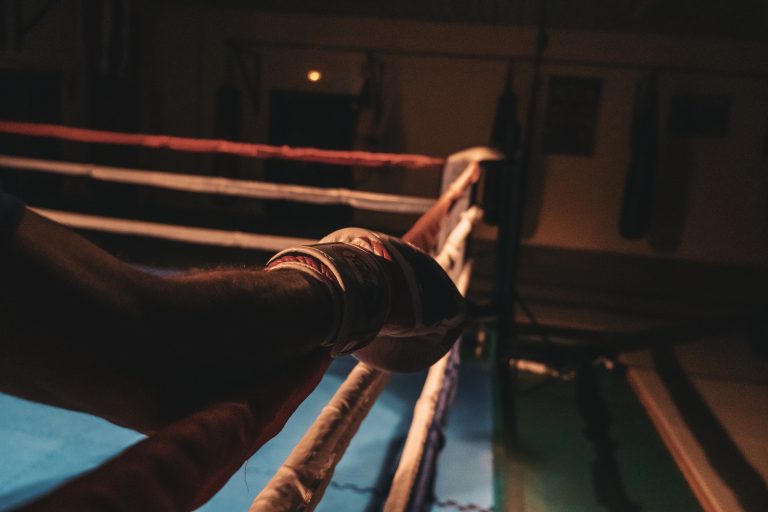How to Start a Karate Dojo: A Comprehensive Guide
Karate is an ancient martial art that has gained immense popularity worldwide. As more and more people are becoming interested in learning this self-defense technique, starting a karate dojo can be a lucrative business opportunity. But, how to start a karate dojo? What are the steps you need to take to make it successful? In this blog post, we will answer all your questions and guide you through the process of starting a karate dojo.
Step 1: Develop a Business Plan
Before starting a karate dojo, it’s essential to create a solid business plan. A business plan includes all the necessary details about your dojo, such as the location, target market, services offered, pricing, and marketing strategies.
Market Analysis
Conduct a thorough market analysis to determine if there is a demand for a karate dojo in your area. Look for other martial art schools in your locality and analyze their pricing, services, and customer base. Also, research your target audience, such as age group, gender, income, etc. This information will help you determine your dojo’s location, services, and pricing.
Financial Plan
Prepare a financial plan that includes all the startup costs, such as renting a space, buying equipment, marketing expenses, and legal fees. Estimate your monthly and annual expenses, such as rental, utilities, instructor’s salary, maintenance costs, etc. You should also determine your revenue streams, such as membership fees, workshops, private lessons, etc.
Marketing Plan
Design a marketing plan that includes branding, advertising, and social media strategies. Create a unique brand name and logo that reflects your karate dojo’s values and identity. Use various advertising methods, such as flyers, posters, and newspapers, etc., to promote your dojo. Social media platforms, such as Facebook and Instagram, can be used to reach more potential clients.
Step 2: Legal Requirements
Starting a karate dojo involves legal formalities that must be adhered to. Here are some of the legal requirements you need to fulfill to start your dojo.
Business Registration
Register your karate dojo as a business entity with the state government. Choose a business structure that best suits your needs, such as sole proprietorship, partnership, or LLC. Also, obtain a business license and tax ID from the local authorities.
Insurance
Ensure that your karate dojo is adequately insured. Buy liability insurance that covers your business from injuries or damages that may occur during training.
Training Certifications
To teach karate professionally, you’ll need to have the required training certifications. Obtain certifications from reputable organizations, such as the Karate Union of Great Britain (KUGB) or the International Shotokan Karate Federation (ISKF).
Step 3: Business Location and Set-up
Choosing the right location and setting up your karate dojo is crucial for its success. Here are some essential factors that you should consider while selecting a location and setting up your dojo.
Location
Choose a location that is easily accessible by public transportation and has ample parking space. Your karate dojo’s location should be in a safe neighborhood with a low crime rate. Analyze if the local demographics align with your target audience.
Facilities
A karate dojo should have a spacious interior, well-lit with proper ventilation. The space should be free from any obstacles or hazards, such as loose carpets or furniture. Install appropriate flooring, such as padded mats or wooden flooring, that suits the martial art’s training requirements. Equip the dojo with essential training equipment, such as punching bags, focus mitts, and kicking shields.
Decor and Ambience
Create a welcoming and inspiring decor that evokes the martial art’s spirit. Choose a color scheme and decor that aligns with your branding identity. Install mirrors on the walls that help students adjust their postures, and play inspiring music during training.
Step 4: Develop a Curriculum
Your karate dojo’s training curriculum should be well-thought-out and cater to your target audience’s needs. Here are some essential factors to consider while developing your karate dojo’s curriculum.
Student Assessment
Conduct a preliminary assessment of your student’s physical and mental abilities to determine their training requirements. Create a grading system that tracks their progress and motivates them to improve.
Training Techniques
Design a unique training routine that targets various techniques, such as strikes, kicks, blocks, and self-defense. Introduce students to different styles of karate, such as Wado-ryu, Shotokan, or Kyokushin.
Instructors
Hire qualified karate instructors who have the proper certifications and experience in teaching karate. Ensure that the instructor’s teaching style aligns with your dojo’s values and culture.
Step 5: Launch and Marketing
After setting up your karate dojo’s facilities, curriculum, and hiring instructors, it’s time to launch and market your business. Here are some essential marketing strategies to promote your karate dojo.
Website and Social Media
Create an informative and well-designed website that includes your karate dojo’s details, services, pricing, and contact information. Use social media platforms, such as Facebook and Instagram, to reach more potential customers.
Promotions and Discounts
Offer introductory promotions, such as free trial classes or membership discounts, to attract new clients. Also, offer referral bonuses to encourage current members to refer their friends and families.
Partnerships and Collaboration
Collaborate with local businesses, such as gyms or fitness centers, to promote your karate dojo. Also, participate in local events and competitions that raise awareness about your business.
Top 10 Frequently Asked Questions to Start Your Own Karate Dojo
Starting a karate dojo can be an exciting and fulfilling experience for anyone with a passion for the martial arts. Whether you are an experienced martial artist or just starting out, you may have a lot of questions about how to start your own karate dojo.
Here are the top 10 frequently asked questions to help you get started:
1. What qualifications do I need to start a karate dojo?
To start a karate dojo, you will need to have a black belt or higher rank in the art that you plan to teach. This will ensure that you have the necessary knowledge and skill to instruct students properly. You should also have experience teaching others, as well as a good understanding of the business side of running a dojo.
2. How much space do I need for a karate dojo?
The amount of space you need for your karate dojo will depend on how many students you plan to have and what kind of training you will provide. As a general rule, you should have at least 1,000 square feet of space for every 10 to 15 students. You will also need a separate office area, dressing room, and waiting area for parents and guests.
3. What equipment do I need for a karate dojo?
Basic equipment for a karate dojo includes mats, punching bags, kicking shields, focus mitts, and other training aids. You will also need basic office supplies and equipment, such as a computer, printer, phone, and filing cabinets. Other equipment you may need will depend on the style of karate you plan to teach, such as weapons or sparring gear.
4. How much does it cost to start a karate dojo?
The cost to start a karate dojo can vary widely depending on factors such as location, size, and equipment needs. As a rough estimate, you should be prepared to invest between $10,000 and $30,000 to cover initial expenses such as rent, equipment, insurance, and marketing.
5. How do I find and retain students for my karate dojo?
Finding and retaining students is one of the biggest challenges facing karate dojo owners. To attract new students, you will need to market your dojo effectively, using strategies such as social media ads, flyers, and introductory classes. To retain students, focus on providing a high-quality training experience, building strong relationships, and offering regular promotions and events.
6. What legal and insurance requirements do I need to meet?
To start a karate dojo, you will need to register your business with the appropriate state and local authorities. You will also need to obtain liability insurance to protect yourself and your students in case of an accident. In addition, you will need to establish clear policies and procedures, such as safety guidelines and a code of conduct.
7. How can I become a certified karate instructor?
To become a certified karate instructor, you will need to complete a formal training program and pass a certification exam. There are several organizations that offer certification programs, such as the International Shotokan Karate Federation and the Japan Karate Association. You may also need to maintain your certification through continuing education and training.
8. What is the most important thing to consider when starting a karate dojo?
The most important thing to consider when starting a karate dojo is your passion and commitment to the art form. Starting a dojo requires a lot of hard work, dedication, and funding. It is important to be willing to invest the time and resources needed to succeed, and to be open to learning and adapting as your dojo grows.
9. How can I differentiate my karate dojo from others in the area?
To differentiate your karate dojo from others in the area, focus on providing a unique and high-quality training experience. This may include offering specialized classes or workshops, using innovative teaching methods, or emphasizing other aspects of the martial arts beyond just physical training. You should also consider your branding and marketing strategy to stand out from other local dojos.
10. How can I make my karate dojo profitable?
To make your karate dojo profitable, you will need to have a solid business plan and be willing to invest time and resources into marketing and networking. Focus on building strong relationships with students, parents, and other local businesses, and offer services beyond just basic classes, such as private lessons and summer camps. You may also consider developing partnerships or sponsorships with local schools or organizations.
Starting a karate dojo requires a lot of hard work and dedication, but it can be a highly rewarding and fulfilling endeavor. By answering these frequently asked questions, you can build a solid foundation for your dojo and focus on providing a high-quality training experience for students.
How to Start a Karate Dojo
Starting a karate dojo can be both challenging and rewarding. It requires a lot of hard work, dedication, and commitment. If you are passionate about martial arts and want to share your knowledge with others, then starting a karate dojo may be the right decision for you. In this guide, we will walk you through the steps involved in setting up a successful karate dojo.
Step 1: Consider Your Goals and Objectives
Before you start a karate dojo, it is crucial to consider your goals and objectives. What do you want to achieve by setting up a karate dojo? Do you want to create a community center for martial arts enthusiasts or provide training to serious athletes who want to compete professionally?
Take the time to assess your reasons for starting a karate dojo and what you want to achieve. This will help you determine the type of students you want to attract, the type of classes you want to offer, and the level of competition you want to participate in.
Step 2: Choose an Appropriate Location
The location of your karate dojo is essential for its success. When choosing a location, consider factors such as accessibility, visibility, parking options, and the cost of rent. Ensure that you choose a location that is easy to find and has sufficient space to accommodate your students.
It is also important to select a location that is safe, clean, and conducive to learning. Your chosen location should have appropriate ventilation, good lighting, and clean restrooms. If possible, choose a location that is away from loud or noisy environments, as this can be distracting for your students.
Step 3: Buy the Necessary Equipment
Once you have secured a location for your karate dojo, it is time to buy the necessary equipment. Depending on your training style and objectives, the required equipment may vary.
Some of the basic equipment you need to start a karate dojo includes:
- Training mats
- Punching bags
- Kicking pads
- Hand wraps
- Gloves
- Karate uniforms
- First-aid kit
When buying equipment, ensure that you purchase high-quality products that will last long and withstand regular use.
Step 4: Develop a Curriculum
To run a successful karate dojo, you need to develop a curriculum that aligns with your goals and objectives. This curriculum should include information on what you will teach, how you will teach it, and the expected outcomes for your students.
Make sure that your curriculum is well-structured, progressive, and adaptable. It should cater to students of different ages and skill levels. If you have little or no experience in curriculum development, consider seeking help from professional karate instructors or other martial arts experts.
Step 5: Hire Qualified Instructors
As your karate dojo grows, you may need to hire qualified instructors to help you out. Look for instructors who are highly skilled, experienced, and passionate about martial arts. They should have a good attitude towards teaching and be able to communicate well with your students.
When hiring instructors, conduct background checks and ensure that they have any required certifications. This will help you avoid liability issues that may arise from injuries caused by inexperienced or unqualified instructors.
Step 6: Market Your Karate Dojo
Marketing is crucial when starting a karate dojo. You need to let people know about your dojo and attract potential students. Some of the marketing strategies you can use include:
- Creating a website for your dojo
- Advertising in local newspapers or magazines
- Using social media platforms to promote your dojo
- Offering free trial classes to attract potential students
- Networking with other martial arts schools or organizations
Conclusion
Starting a karate dojo is an exciting and rewarding undertaking. With proper planning, dedication, and hard work, you can set up a successful dojo that meets your goals and objectives. By following the steps outlined in this guide, you can create a community of martial arts enthusiasts and help your students achieve their full potential.
Inhaltsverzeichnis






